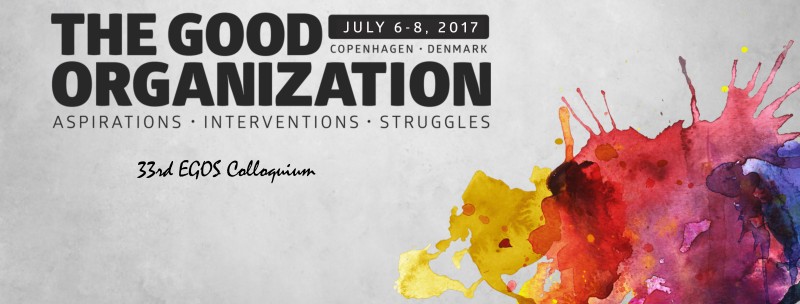Sub-theme 33: Organizational Struggles over the Natural Environment
Call for Papers
The last century has witnessed unprecedented economic growth and a rapid increase in the global population leading to the
degradation of the natural environment. As recent research has highlighted we are now exceeding many basic ‘planetary boundaries’
evident in biodiversity decline, climate change, freshwater scarcity and the degradation of the nitrogen and phosphorus cycles
(Whiteman et al., 2013). Indeed, Earth-system scientists argue that human-induced changes to the planet’s eco-system mean
we have entered a new geological epoch, the Anthropocene (Crutzen, 2002).
Within the context of increasing
environmental degradation and resource scarcity, struggles over the natural environment are increasing between a variety of
organizations and social actors, including major corporations, national and regional governments, NGOs and emerging grassroots
organizations and communities. These struggles involve movements which draw social actors together around particular issues
that are rife with contests (Benford & Snow, 2000), ‘legitimacy battles’ (Kaplan, 2008) and power struggles (van Bommel
& Spicer, 2011). This includes differences in motivation (e.g. conservation vs. exploitation), strategy (e.g. nuclear
vs. renewables) usage (e.g. farming vs. mining), and physical impacts (e.g. climate change, mass extinction, ocean acidification).
Further, environmental struggles often straddle political, professional and personal boundaries and identifications (Wright
& Nyberg, 2015; Wright et al., 2012).
In this sub-theme we are interested in papers exploring the dynamics
of struggles over the natural environment. Possible topics and questions include, but are not limited to:
Transnational
and national struggles
- How are social movements shaping transnational and national politics?
- How do multinational corporations (MNCs) manage different and plural struggles over the environment?
- How do global struggles (e.g. climate change) influence national struggles (e.g. ‘fracking’)?
Inter-organizational
struggles
- How does (political) CSR legitimize corporate attempts to harness environmental resources and overcome resistance?
- What are the different forms of corporate, government and NGO relations in conflicts over environmental issues?
- How do different perspectives at the inter-organizational level interact and how might dominant discourses emerge?
Intra-organizational struggles
- How do struggles and tensions arise within the parameters of movement activities?
- How are these tensions ‘managed’ at the organizational level (both intra- and inter-organizational interactions)?
- What are the implications of tensions and negotiations for the mobilization of an effective environmental movement?
Theorization of environmental
struggles
- How can we account for the ‘political’ in the politics of the environment?
- How can we overcome (false) dichotomies in the debate, such as, emotion/reason and personal/political.
- How can we bridge or combine contemporary theorization of struggles, e.g. social movement and corporate political activities (CPA) literature?
The sub-theme intends to foster a multi-disciplinary exchange of ideas and research. Bounded by an interest in environmental
struggles, we invite both empirical and theoretical contributions to an inclusive sub-theme discussion.
References
- Benford, R.D., & Snow, D.A. (2000): “Framing Processes and Social Movements: An Overview and Assessment.” Annual Review of Sociology, 26, 611–639.
- Crutzen, P.J. (2002): “Geology of Mankind: The Anthropocene.” Nature, 415 (6867), 23.
- Kaplan, S. (2008): “Framing Contests: Strategy Making under Uncertainty.” Organization Science, 19 (5), 729–752.
- van Bommel, K., & Spicer, A. (2011): “Hail the Snail: Hegemonic Struggles in the Slow Food Movement.” Organization Studies, 32 (12), 1717–1744.
- Whiteman, G., Walker, B., & Perego, P. (2013): “Planetary Boundaries: Ecological Foundations for Corporate Sustainability.” Journal of Management Studies, 50 (2), 307–336.
- Wright, C., & Nyberg, D. (2015): Climate Change, Capitalism and Corporations: Processes of Creative Self-Destruction. Cambridge: Cambridge University Press.
- Wright, C., Nyberg, D., & Grant, D. (2012):
“’Hippies on the Third Floor’: Climate Change, Narrative Identity and the Micro-Politics of Corporate Environmentalism.” Organization
Studies, 33 (11), 1451–1475.


